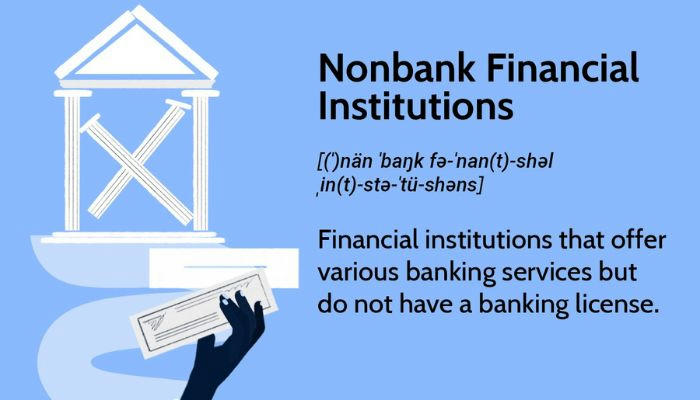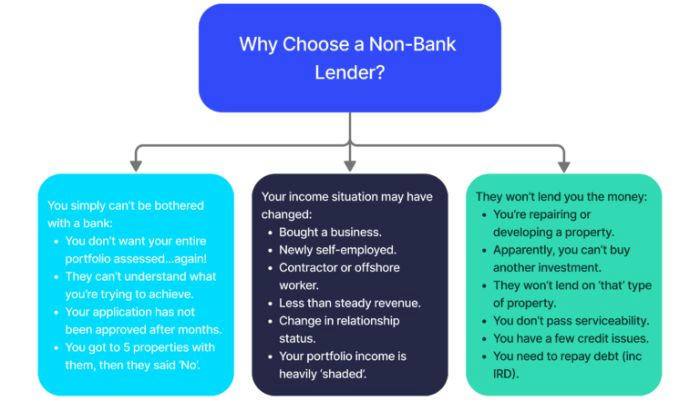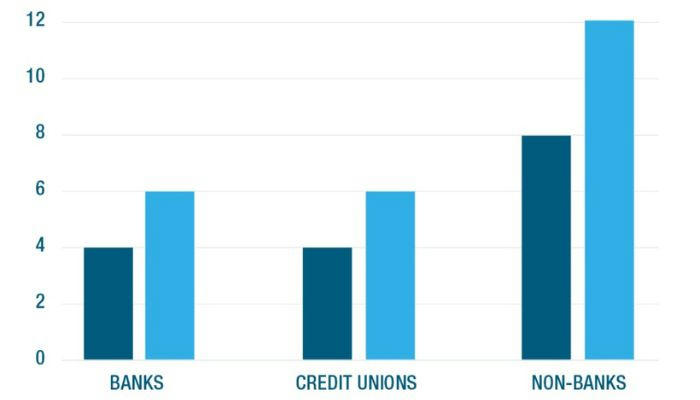Non-Bank Loans: Fast Cash or Risky Business?
In today's fast-paced world, traditional banks aren't the only players in the lending game. Non-bank loans have exploded in popularity, offering quick cash without the hassle of long approval processes or endless paperwork. But are they a financial lifesaver or a debt trap waiting to happen? Let's dive into the wild world of non-bank loans and see what they're all about.
What Are Non-Bank Loans?
Non-bank loans are exactly what they sound like: loans provided by institutions that aren't traditional banks. These lenders can include online platforms, credit unions, peer-to-peer lending services, payday lenders, and even fintech companies. They've become a go-to option for people who need money fast, have less-than-perfect credit, or simply don't want to deal with the bureaucracy of big banks.
The appeal is clear: non-bank loans are often faster, more flexible, and sometimes easier to qualify for. But with great convenience comes great responsibility—and sometimes, great risk.

Why Are Non-Bank Loans So Popular?
Speed and Convenience
Traditional banks can take weeks to approve a loan. Non-bank lenders, on the other hand, often promise cash in your account within 24 hours. Need money for an emergency car repair or a last-minute bill? Non-bank loans have you covered.
Easier Approval
Banks are picky. They want high credit scores, stable incomes, and a long history of financial responsibility. Non-bank lenders are more lenient, often approving loans for people with bad credit or no credit history at all.
No Face-to-Face Interaction
Forget sitting in a bank office for hours. Non-bank loans are usually handled entirely online, from application to approval. It's lending for the digital age.
Flexible Options
From small payday loans to large personal loans, non-bank lenders offer a wide range of products to fit different needs. Whether you need $200 or $20,000, there's likely a non-bank loan for you.

The Dark Side of Non-Bank Loans
While non-bank loans sound like a dream come true, they come with their fair share of risks. Here's what you need to watch out for:
High Interest Rates
Non-bank lenders often charge significantly higher interest rates than traditional banks. Payday loans, for example, can have APRs (annual percentage rates) as high as 400%! That's not a typo—four hundred percent. If you're not careful, you could end up paying back way more than you borrowed.
Hidden Fees
Some non-bank lenders are notorious for tacking on hidden fees. Origination fees, late payment fees, and prepayment penalties can quickly add up, turning what seemed like a good deal into a financial nightmare.
Debt Traps
The ease of getting a non-bank loan can lead to a dangerous cycle of borrowing. If you can't repay your loan on time, you might be forced to take out another loan to cover the first one—and another, and another. Before you know it, you're drowning in debt.
Lack of Regulation
Traditional banks are heavily regulated, which helps protect consumers. Non-bank lenders, especially online ones, often operate in a gray area with fewer rules. This can make it harder to resolve disputes or get help if something goes wrong.

Types of Non-Bank Loans
Non-bank loans come in all shapes and sizes. Here are some of the most common types:
Payday Loans
These are short-term loans designed to cover expenses until your next paycheck. They're easy to get but come with sky-high interest rates and fees. Use them at your own risk.
Peer-to-Peer (P2P) Loans
P2P platforms connect borrowers directly with individual investors. Interest rates are usually lower than payday loans, but you'll still need decent credit to qualify.
Online Personal Loans
Fintech companies like LendingClub and SoFi offer personal loans with competitive rates and fast approval times. These are a step up from payday loans but still require careful consideration.
Title Loans
If you own a car, you can use it as collateral for a title loan. The catch? If you can't repay the loan, the lender can take your car.
Installment Loans
These loans allow you to borrow a lump sum and repay it in fixed monthly installments. They're more structured than payday loans but can still come with high interest rates.
Who Should Consider Non-Bank Loans?
Non-bank loans aren't for everyone, but they can be a good option in certain situations:
Emergency Expenses: If you need cash fast for an unexpected bill or repair, a non-bank loan might be your best bet.
Bad Credit: If your credit score is too low for a traditional bank loan, non-bank lenders might still approve you.
Small Amounts: Need just a few hundred dollars? Non-bank loans are often more accessible for small sums.

Tips for Borrowing Responsibly
If you decide to take out a non-bank loan, follow these tips to avoid getting burned:
Read the Fine Print: Make sure you understand the interest rates, fees, and repayment terms before signing anything.
Borrow Only What You Need: It's tempting to take out more than you need, but remember—you'll have to pay it back, with interest.
Have a Repayment Plan: Before borrowing, figure out how you'll repay the loan. Missing payments can lead to fees and damage your credit.
Compare Lenders: Shop around to find the best rates and terms. Don't settle for the first offer you see.
Avoid Rollovers: If you can't repay a payday loan on time, don't roll it over into a new loan. This will only make your debt worse.
The Future of Non-Bank Loans
The non-bank lending industry is growing rapidly, thanks to advances in technology and changing consumer preferences. Fintech companies are using AI and big data to make lending faster and more personalized. At the same time, regulators are starting to pay more attention to the industry, which could lead to better protections for borrowers.
But as the industry evolves, so do the risks. New types of loans and lending platforms are popping up all the time, and not all of them have your best interests at heart. As a borrower, it's up to you to stay informed and make smart decisions.
Final Thoughts
Non-bank loans can be a powerful tool when used responsibly. They offer speed, convenience, and accessibility that traditional banks simply can't match. But they also come with risks that can't be ignored. High interest rates, hidden fees, and the potential for debt traps make them a double-edged sword.
If you're considering a non-bank loan, do your homework. Understand the terms, weigh the pros and cons, and make sure you're borrowing for the right reasons. With the right approach, non-bank loans can help you navigate financial challenges—but if you're not careful, they can make those challenges even worse.
In the end, the choice is yours. Just remember: when it comes to borrowing, there's no such thing as free money.

